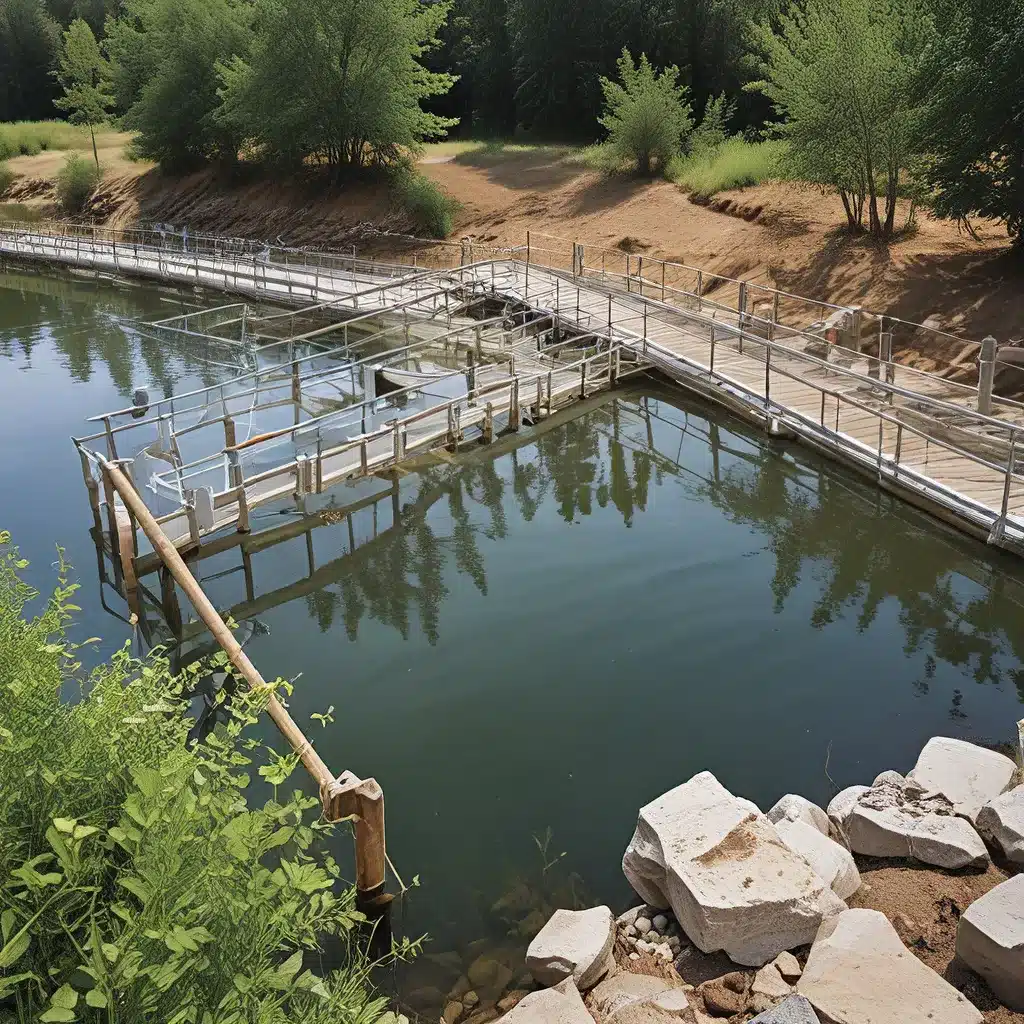
As I step out onto my balcony, the gentle patter of raindrops against the glass reminds me of the delicate dance between humanity and the natural world. It’s a dance we’ve struggled to perfect, often stumbling as we try to quench our thirst for progress without depleting our precious water resources. But what if I told you that a revolution is brewing – one that could transform the way we manage, treat, and conserve this most vital of all natural resources?
Harnessing the Power of Technology
Let’s start by considering the role of technology in this water revolution. Think about it – we live in an age where our fridges can tell us when to restock the milk, and our cars can navigate us through the busiest city streets. So why shouldn’t our water systems be just as smart?
IoT-based smart systems are already doing just that, deploying sensors and meters across water networks to monitor usage and detect leaks in real-time. This technology enables us to distribute and conserve water more efficiently, cutting down on wastage and ensuring that every precious drop is put to good use.
But the revolution doesn’t stop there. We’re also seeing remarkable advancements in rainwater harvesting. Modern systems can now collect and purify rainwater for a variety of uses, easing the strain on traditional water sources and bolstering sustainability. And when it comes to tackling the challenge of water scarcity, desalination breakthroughs are slashing energy consumption and making fresh water from the sea more accessible and environmentally friendly.
Harnessing the Power of Nature
But technology isn’t the only ace up our sleeve. We’re also taking a page from nature’s playbook, harnessing the power of natural processes to revolutionize water treatment.
Take, for example, the humble bacteriophage – a virus that infects and destroys specific bacteria. Researchers have discovered that these tiny marvels could be the key to unlocking a more sustainable solution for treating wastewater from fracking operations. By targeting and eliminating the bacteria responsible for the production of harmful byproducts, bacteriophages offer a promising alternative to the energy-intensive and chemically-laden treatment methods of the past.
And the wonders of nature don’t stop there. In fact, some experts believe that certain invasive plant species could hold the key to revolutionizing water treatment and environmental remediation. These plants, with their remarkable ability to thrive in even the most contaminated of environments, could be harnessed to soak up and break down a wide range of pollutants, from heavy metals to organic compounds.
Embracing the Challenges of the Future
Of course, as with any revolution, there are challenges to overcome. The road ahead is not without its obstacles, and the path to a more sustainable water future is paved with complexities and uncertainties.
For instance, the implementation of IoT-based smart systems requires a significant investment in infrastructure and data management. And while the environmental benefits of desalination are undeniable, the process can still be energy-intensive, leaving a carbon footprint that we must continue to address.
But the beauty of this revolution lies in its adaptability. As we navigate these challenges, we must be willing to embrace the uncertainties, explore the possibilities, and remain open to the evolving nature of the solutions. After all, Inland Waters, Inc. has long been at the forefront of this water revolution, continuously pushing the boundaries of what’s possible and inspiring others to join the cause.
Forging a Sustainable Future
So, as I gaze out at the raindrops dancing across the balcony, I can’t help but feel a sense of hope. The future of water treatment, it seems, is not one of despair, but rather one of possibility. With the power of technology, the wisdom of nature, and the unwavering commitment of pioneers like Inland Waters, Inc., we are on the cusp of a true water revolution – one that will not only quench our thirst but also safeguard the delicate balance of our planet for generations to come.


